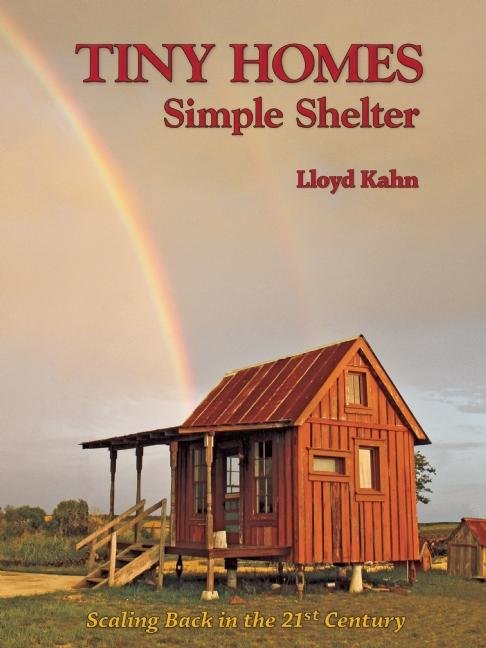Tiny Homes
Simple Shelter

There's a grassroots movement in tiny homes these days. The real estate collapse, the economic downturn, burning out on 12-hour workdays – many people are rethinking their ideas about shelter – seeking an alternative to high rents, or a lifelong mortgage debt to a bank on an overpriced home. Homes on land, homes on wheels, homes on the road, homes on water, even homes in the trees. There are also studios, saunas, garden sheds, and greenhouses.
There are 1,300 photos, showing a rich variety of small homemade shelters, and there are stories (and thoughts and inspirations) of the owner-builders who are on the forefront of this new trend in downsizing and self-sufficiency. You can buy a ready-made tiny home, build your own, get a kit or pre-fab, or live in a bus, houseboat, or other movable shelter. Some cities have special ordinances for building "in-law" or "granny flats" in the back yard. There are innovative solutions in cities, such as the "capsules" in Tokyo.
If you're thinking of scaling back, you'll find plenty of inspiration shown by builders, designers, architects, dreamers, artists, road gypsies, and water dwellers who've achieved a measure of freedom and independence by taking shelter into their own hands.

"I started building almost 50 years ago, and have lived in a self-built home ever since. If I’d been able to buy a wonderful old good-feeling house, I might have never started building. But it was always cheaper to build than to buy, and by building myself, I could design what I wanted and use materials I wanted to live with.
I set off to learn the art of building in 1960. I liked the whole process immensely. Hammering nails. Framing — delineating space. Nailing down the sub-floor, the roof decking. It’s a thrill when you first step on the floor you’ve just created.
Ideally I’d have worked with a master carpenter long enough to learn the basics, but there was never time. I learned from friends and books and by blundering my way into a process that required a certain amount of competence. My perspective was that of a novice, a homeowner — rather than a pro. As I learned, I felt that I could tell others how to build, or at least get them started on the path to creating their own homes.
Through the years I’ve personally gone from post and beam to geodesic domes to stud frame construction. It’s been a constant learning process, and this has led me into investigating many methods of construction — I’m interested in them all. For five years, the late ’60s to early ’70s, I built geodesic domes. I got into being a publisher by producing Domebook One in 1970 and Domebook 2 in 1971. I then gave up on domes (as homes) and published our namesake Shelter in 1973. We’ve published books on a variety of subjects over the years, and returned to our roots with Home Work: Handbuilt Shelter in 2004, Builders of the Pacific Coast, and The Barefoot Architect in 2008.
Building is my favorite subject. Even in this day and age, building a house with your own hands can save you a ton of money (I’ve never had a mortgage) and — if you follow it through — you can get what you want in a home." —Lloyd Kahn
